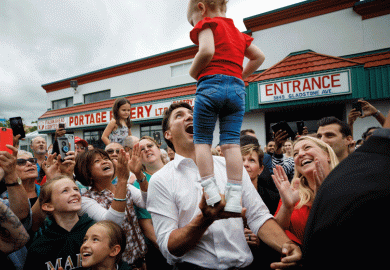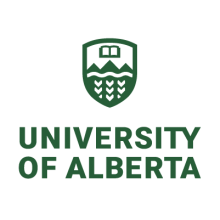The Canadian province of Alberta is cutting spending on higher education and increasing tuition fees, in a sign of the challenges facing newly re-elected prime minister Justin Trudeau in his bid to reduce the debt burden on graduates.
Alberta’s premier, Jason Kenney, announced an annual budget that will cut higher education funding by about 7 per cent a year and increase fees at a similar rate. Student loan costs will also rise.
The province had traditionally led Canada in terms of per-student university spending, and the repositioning was driven by sharp declines in Alberta’s once-prosperous oil industry. The goal, said Mr Kenney’s finance minister, Travis Toews, was to “align our spending with that of our comparator provinces”.
But the change of direction also highlights Canada’s growing political divide. Mr Trudeau was narrowly re-elected on promises to boost student grant aid and lower borrowing costs nationwide.
But he failed to win a single seat in the western provinces of Alberta and Saskatchewan, where there has been heavy criticism of the carbon tax introduced by Mr Trudeau and delays in building a controversial oil pipeline to the Pacific coast.
Education is largely a provincial, rather than a federal mandate, meaning that Mr Trudeau will need the help of regional administrations to achieve his policy goals.
Mr Kenney choreographed his strategy well in advance, and public universities in the province described themselves as getting prepared. The new budget “signals a major shift in government policy around the funding of post-secondary education”, the president of the University of Alberta, David Turpin, said.
Professor Turpin acknowledged that the province has been generous in its support of higher education, and he said the University of Alberta “has stewarded this public investment well”, as reflected in measures that include high rates of student graduation and external research support.
But that’s not the case for many other public universities in Alberta, said Grant Bishop, an associate director of research at the C.D. Howe Institute, as the province’s institutions overall accounted for some of Canada’s worst performances in enrolment and degree completion.
“The push is now to make higher education competitive” in Alberta, he said.
Mr Kenney’s solution involves a performance-based system that will allocate public dollars to institutions based on measures that include success in responding to employer needs.
That’s a controversial idea already being introduced in Ontario, where another conservative premier, Doug Ford, also has been cutting education budgets and asking students to pick up a bigger share.
Mr Kenney’s plan would allow institutions to increase tuition fees by an average of 7 per cent each year for three years.
Professor Turpin said his institution, which he is leaving next year, needed more time to consider the implications. “In the longer term, we will need to make significant, structural changes,” he said. “We must consider all options, but also take time and not respond reflexively.”
Register to continue
Why register?
- Registration is free and only takes a moment
- Once registered, you can read 3 articles a month
- Sign up for our newsletter
Subscribe
Or subscribe for unlimited access to:
- Unlimited access to news, views, insights & reviews
- Digital editions
- Digital access to THE’s university and college rankings analysis
Already registered or a current subscriber?










